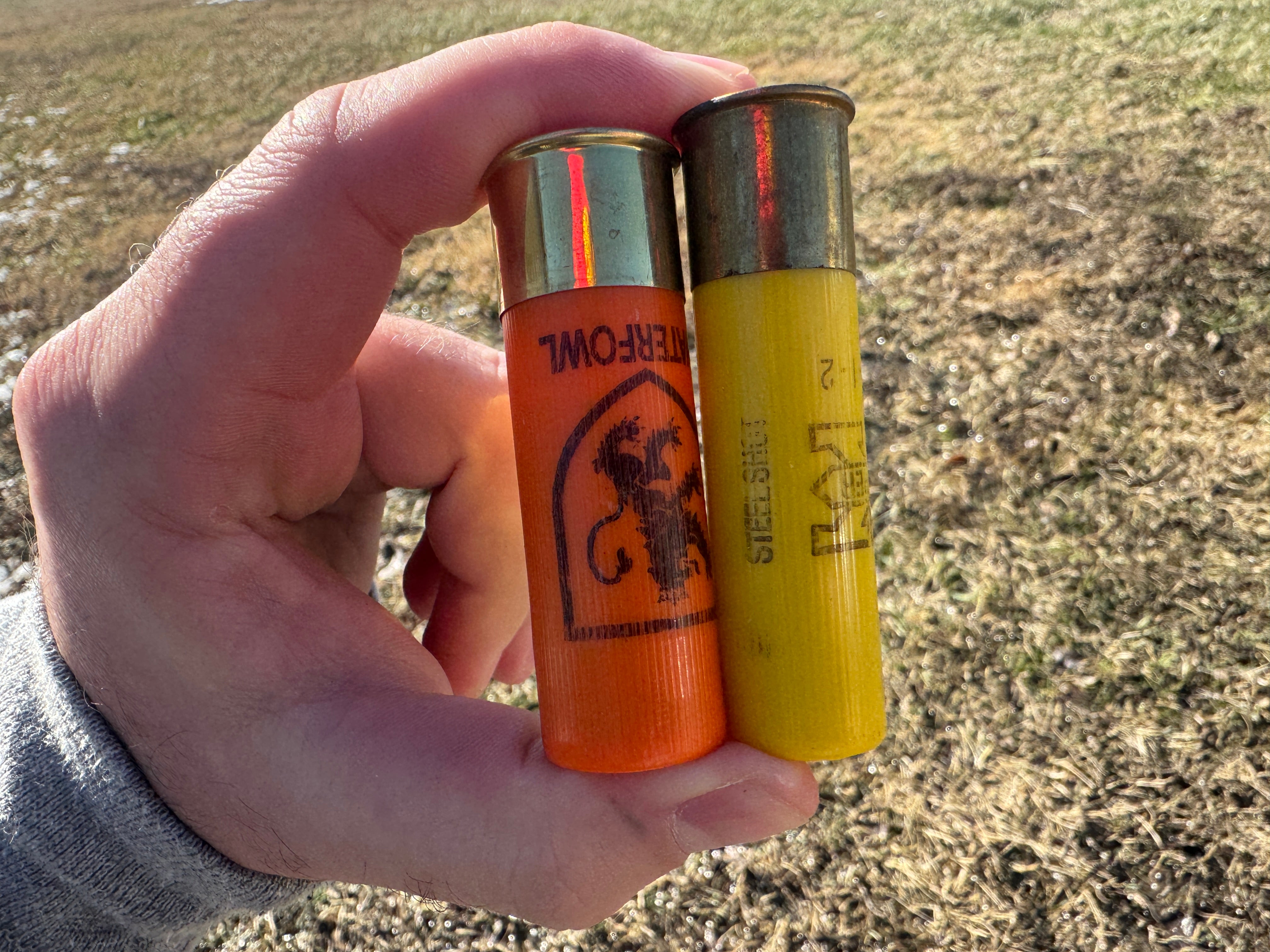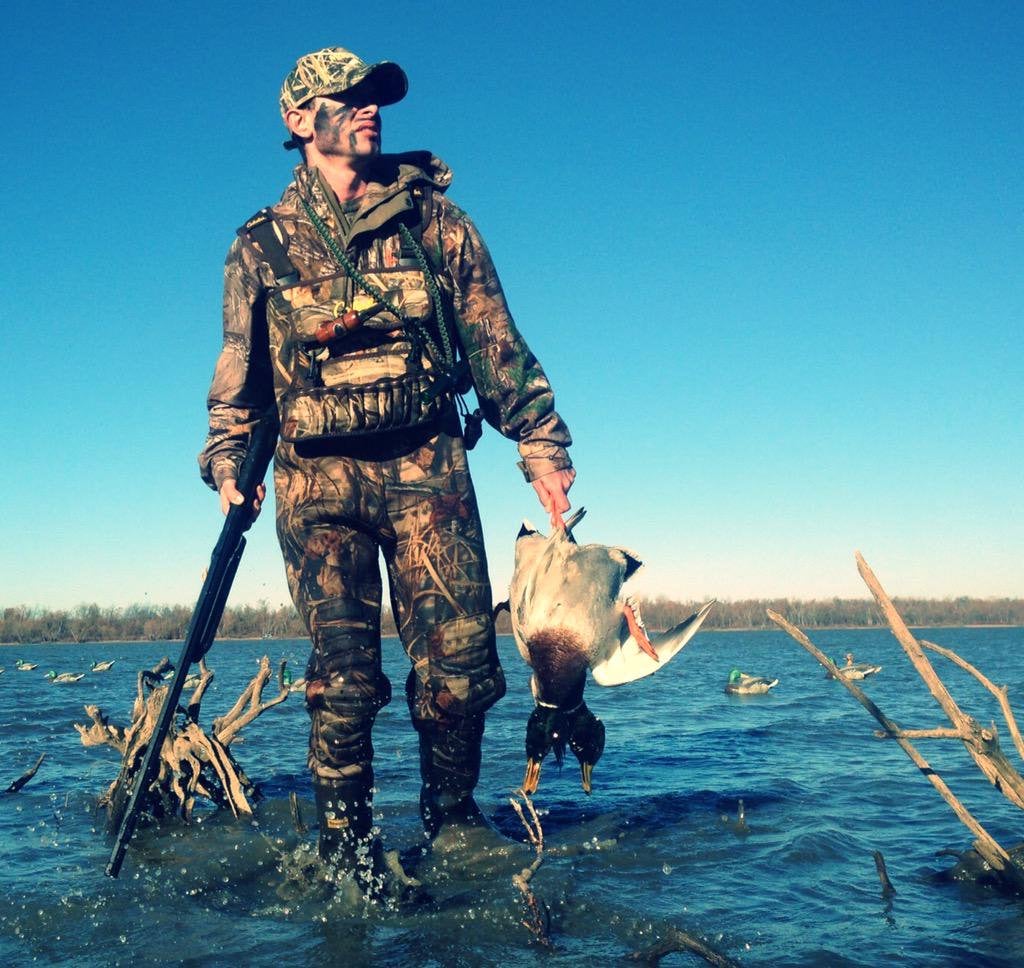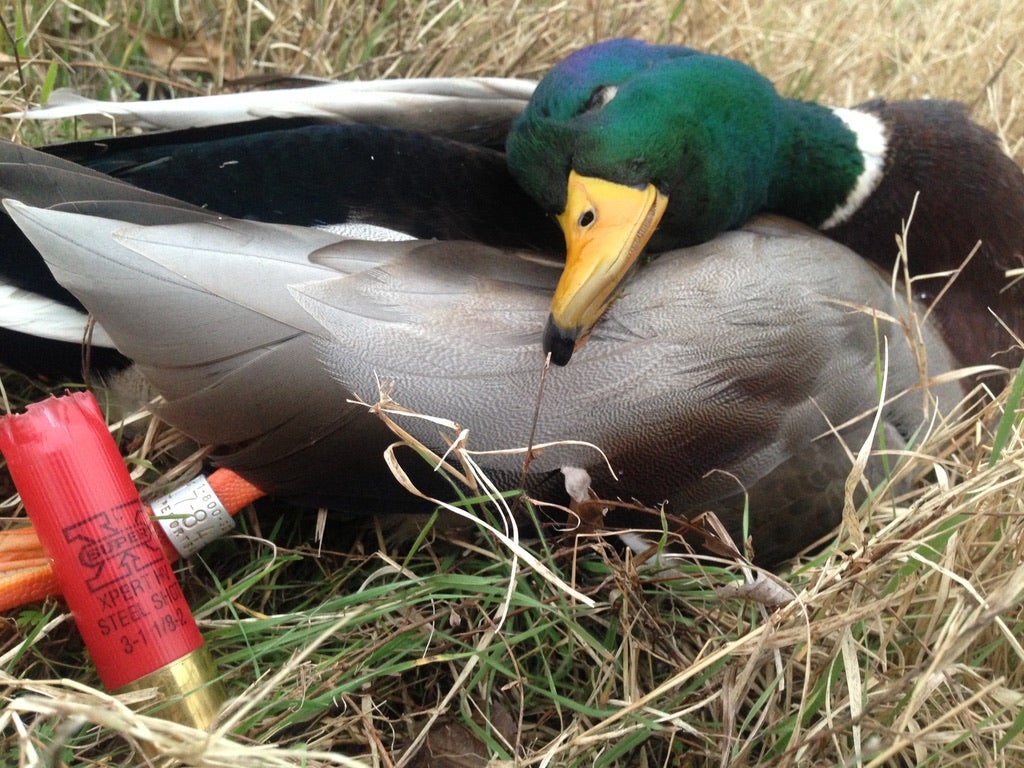Many considerations must be made when buying a new waterfowl hunting shotgun. One of the most significant is the gauge. Two of the most common are 12 gauge and 20 gauge, but which is better? Well, that depends on several factors that we are about to discuss. Let’s begin with all the benefits of a 12 gauge shotgun, the pros, the cons, and whether you should be bringing one with you out in the field for duck and goose hunting.
Duck and Goose Hunting Coverage on AllOutdoor
- I Started Duck Hunting With An Over-Under: Here’s Why
- NEW Vortex Optics GlassPak Pro Accessories: Now Everything is At-Hand
- Breathable Vs. Neoprene Duck Hunting Waders: Which Type Is Better?
- Overharvesting Endangered Species?! An Old Hunting License Explains
12 Gauge Shotgun
There are many reasons why the 12-gauge shotgun is the primary choice for waterfowl hunters. Below, I’ve included as many as I could think of off the top of my head:
Pros
- More pellets per shell
- Large ammo selection
- Plenty of stopping power for large waterfowl species
- There are lots of shotgun choices
While having more pellets per shell isn’t the reason why many hunters claim that they love the 12 gauge, it’s always a significant contributing factor. More projectiles per shell means you have a higher percentage of hitting the bird. Since not all of us are sharpshooters, most waterfowl hunters welcome these extra pellets.

I mainly hunt with a 12-gauge shotgun because of the large ammo selection. With a 12-gauge, I have a better shot size, type, and shell length selection, which means I can better tailor my ammo selection to the species I’m targeting for that hunt.
I’m a massive fan of Sandhill Crane and big Canada Goose hunting, but you need powerful shells to stop those large birds. I know some guys use a turkey load for Sandhill Cranes for the additional stopping power, but I’ve found 12 gauge BB and T-shot to be plenty while hunting these giant birds.
Lastly, since the 12 gauge is a popular shotgun, more firearms manufacturers make guns in this gauge, meaning you have more options to get the perfect gun for you. You can choose between an over-under, pump-action, or semi-auto that shoots 3” or 3 ½” shells.

As much as I love using a 12 gauge shotgun for waterfowl hunting, there are a few downsides that kept me from using one in the past.
Cons
- Heavier recoil
- Specialty rounds are still expensive
As a child, my dad bought me a 20 gauge shotgun because I couldn’t handle the recoil from his 12 gauge. I weighed 60 Lb soaking wet, so a heavy recoil firearm would quickly put me on my butt or hurt my shoulder. Today, I don’t recommend a 12 gauge for any recoil-sensitive shooter because it has more kick, especially when using 3 ½” waterfowl load shells.
The other con is how expensive the specialty loads are despite more hunters buying them. Tungsten and other specialty waterfowl loads are still overpriced, no matter what gauge you are using, which doesn’t make sense for the 12 gauge because of how many hunters buy these rounds.
20 Gauge Shotgun

With the development of tungsten pellets, smaller gauges like the .410 Bore and 20 Gauge have surged in popularity for waterfowl and turkey hunting. Do they now have the power to take large Canada Geese and Sandhill Cranes, or are they still limited to teal hunting?
Pros
- Less felt recoil
- Lighter shotgun
- Better for kids
- Typically less expensive
As I mentioned, my dad bought a 20-gauge pump shotgun so I could go duck hunting with him. The most significant reason he chose a pump-action youth 20-gauge was the lower recoil than his old 12-gauge. I’ve heard some people complain about the 20 gauge having more recoil, but in my experience, this hasn’t held true, especially when firing 2 ¾” shells.
Surprisingly, the 20 gauge shotguns I’ve used for duck hunting have been lighter and had less felt recoil. This is ideal for kids and hunters who don’t have the strength to shoulder a big, heavy 12 gauge.
It’s probably because I’m a bit biased, but I believe the 20 gauge is better for kids because of the lower recoil and lighter shotgun. It also teaches them to aim a little better since 20 gauge shotshells have fewer pellets per shell than 12 gauge shells of the same length and pellet size. My kid’s first duck hunting shotgun was my old 20 gauge hand-me-down shotgun.
Lastly, 20 gauge shells tend to be slightly less expensive since less material is getting used while making them. However, this isn’t always the case, as fewer people use a 20 gauge, and some places jack up the prices on 20 gauge shells.
Now, a few downsides accompany using a 20 gauge shotgun for duck and goose hunting.

Cons
- Fewer pellets per shell
- Specialty ammo is expensive
- Fewer shotgun choices
As I briefly touched on, there are fewer pellets per shotshell of the same length and shot size, so you’ll need to be more accurate when using a 20 gauge.
As I mentioned, 20 gauge specialty ammo is still expensive and often overpriced because fewer people use it than 12 gauge ammo.
Lastly, 20 gauge hunters tend to have fewer options for shotguns, or you have to look a little harder and longer to find the one you want. Whereas, you can go to most outdoor stores and pick up the 12 gauge shotgun you’ve been looking at for weeks.
Parting Shots

Unless I’m looking to challenge myself or just feeling a little nostalgic, I likely have a 12 gauge in the duck blind. I’ve found it to be the better choice, more often than not. However, the 20 gauge might be the better option for young duck hunters, thanks to its lower recoil and lighter shotguns. Or you can be like me, own both, and test them for yourself!
Good luck this duck and goose hunting season!
The post 12 Gauge vs 20 Gauge: Which to Use for Duck & Goose Hunting? appeared first on AllOutdoor.com.
